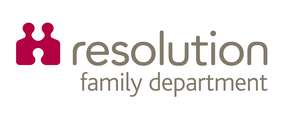Stonewalling: Domestic abuse

Domestic abuse includes various forms of harm, both visible and invisible. In this article we look at one form of invisible abuse – stonewalling – and aim to shed light on its profound impact on victims, and strategies to recognise and deal with it.
Stonewalling as a form of domestic abuse
When carried out intentionally, stonewalling can be a manipulation tactic involving deliberately refusing to communicate, withdrawing from interaction, and/or avoiding discussions. Intentional stonewalling by an emotionally abusive or controlling partner can be used to exert power and manipulate circumstances. Its subtle nature makes it challenging to detect, but its effects can be deeply damaging over time. It can demean a partner while gaining control over a situation.
The psychological impact of stonewalling is significant, with victims often grappling with feelings of severe loneliness, anxiety, and depression. The persistent rejection and silence from their partner can lead to self-doubt, and over time, erode their self-esteem, self-confidence and communication skills.
Context is key - unintentional stonewalling can arise outside a domestic abuse context, when individuals, often through learned habits, refrain from communicating to manage challenging or sensitive subjects, or to avoid escalating a conversation, without intending to manipulate or cause any harm to someone else. While hurtful and upsetting, this behaviour is not domestic abuse.
Recognising stonewalling
Identifying subtle signs of stonewalling in a relationship can be challenging, as they are often not obvious.
The following are examples of indicators of stonewalling by a perpetrator of domestic abuse.
- Avoiding eye contact, intentionally appearing aloof and disinterested.
- Giving the silent treatment, ignoring questions or attempts to initiate discussions.
- Avoiding meaningful conversation and/or refusing to discuss significant issues.
- Withdrawing from discussions.
- Emotional detachment or distancing, appearing indifferent or unresponsive to the emotional needs or concerns of the other person
- Physical withdrawal, including leaving a room during a conversation or turning their back on a partner while they are talking
- Deflecting blame, making excuses or refusing to admit fault, failing to take responsibility for the impact of their actions and behaviours on others.
Stonewalling does not typically involve an isolated incident but rather a pattern of behaviour, often carried alongside other abusive behaviours.
What can a victim do about stonewalling?
For a victim, recognising that intentional stonewalling is being used as a form of manipulation, control and abuse and is not a reflection of their own inadequacies is the first step to breaking free from such destructive patterns. Seeking the right professional support can provide the person being stonewalled with the necessary tools to heal from the emotional scars, regain a sense of self-worth and find a way out of abusive situations.
Reaching out to trusted friends, family members, or support groups can provide emotional support and guidance. Sharing experiences with others who understand can help a victim feel less isolated.
Professional counselling and therapy can help someone to rebuild and recover from an abusive relationship including one that has involved stonewalling. However, legal advice might also be needed.
The legal definition of domestic abuse was expanded by the Domestic Abuse Act 2021 and this has led to an increased awareness and understanding of non-physical forms of abuse and better support and legal protections for victims of such abuse. Victims of domestic abuse of any kind have the legal right to protection, and at Tees, we are experienced in helping clients in these situations.
Our solicitors can help you apply for the right court order to protect you and can support you through the process. We can also help you if your partner or abuser breaks the terms of a court order.
If you are in immediate danger from domestic abuse, call the police – dial 999. If you need legal advice urgently, Tees provides out of hours support. Call our family law emergency number on 07757 674760 to talk to a solicitor.
Chat to the Author, Lisa Honey
Senior Associate, Families and Divorce, Chelmsford office
Meet Lisa


